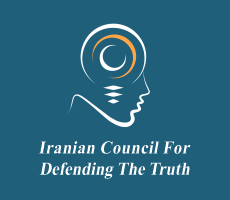Professor James D. Savage
President Biden is seeking to restore the working diplomatic relations between the United States and Iran that existed during the Obama administration that were interrupted by President Trump. Biden signaled his intent soon after he became president by removing a U.S. Navy aircraft carrier from the Persian Gulf that Trump sent there. Biden is very cautiously attempting to return the U.S. and Iran to the terms of the 2015 Joint Comprehensive Plan of Action (JCPOA) nuclear agreement. Biden has also suspended offensive military weapons sales to Saudi Arabia and the UAE.
Both the U.S. and Iran are predictably engaging in diplomatic politics to demonstrate from relative positions of strength they are willing to be very tough negotiators. When asked whether the U.S. will lift sanctions against Iran to encourage it to “return to the bargaining table,” Biden nodded affirmatively to the question “They have to stop enriching uranium first? Thus, for Biden, Iran would first need to prove it is willing to compromise. At the same time, Iran’s supreme leader Ayatollah Ali Khamenei stated “The U.S. must lift all sanctions in practice, then we will do verification and see if the sanctions were lifted correctly, then we will return to our commitments.” Thus, for Ayatollah Khamenei, the U.S. would first need to prove it is willing to compromise. This is how international relations takes place.
Professor Jamsheed K. Choksy
New US President Biden will attempt to pursue a constructive policy toward engaging Iran on nuclear and other issues and will seek to encourage Tehran to work with Washington and the global community toward amicable resolution of outstanding problems. His attempts are reengaging Iran is constrained, however, by actions of Iran’s leaders in response to those of former US President Trump. I.e. Biden probably will not be able to lift sanctions while Iran stays outside the limits of the JCPOA. Perhaps the solution that both countries, the US and Iran, could reach is a simultaneous set of actions through which each party comes back into the accord. Thereafter, more difficult negotiations will have to be undertaken to ensure neither nation continues to regard the other as a threat to itself or its allies and partners.
Professor Joel Migdal
Biden is eager to move towards foreign policies based on diplomacy and multilateralism. His latest invitation to Iran to rejoin talks and his involvement of the Europeans demonstrate that. I don’t think his policies will be softer, but they will be geared towards negotiations first and only if that fails moves towards sanctions and possible force. He will also use the negotiations as a lever to deal with Iran’s role in the Middle East and the production of precision missiles.
Biden has sent clear signals to both Saudi Arabia and Israel that he wants to involve them in any Middle East negotiations BUT he has signaled that he won’t be dictated to (e.g., his long delayed phone call to Netanyahu and his removal of the designation of the Houthis as a terrorist organization, contrary to Saudi Arabia’s preferences). However, I don’t think the U.S. and Israel will agree to make West Asia a nuclear-weapon-free zone (NWFZ).
Professor Geoffrey Carliner
I thought for a long time about how to answer your questions and concluded that I don’t know why the US and Iran both say the other has to return to the JCPOA first. This seems silly. It should be easy to negotiate a simultaneous announcement that the US is dropping sanctions and Iran is no longer enriching uranium above the JCPOA limit and will dispose of any uranium above the limit. I do not understand why this hasn’t happened!
Biden and his team will have a softer approach to Iran than Trump. Israel and Saudi Arabia may oppose the US returning to the JCPOA but they will not be able to stop Biden from doing that. Saudi Arabia and the other Arab countries will agree to a nuclear weapon free zone in Southwest Asia, but Israel will not give up its nuclear weapons, if that is what you are indirectly asking.
Professor Robert Y. Shapiro
U.S. Secretary of State Antony Blinken says Iran must move first to restart the nuclear deal, while Iran says America must remove sanctions first. Given that the U.S. under Donald Trump pulled out of the nuclear deal unilaterally and imposed sanctions, it isn’t reasonable to ask Iran to reverse its nuclear steps first. But, you always begin to negotiate from a position of strength. To start where the Obama administration left off–where Iran was then. In my view, Iran will have to provide something tangible in return to any reduction in sanctions and reinstating the JCPOA.
Biden should remove sanctions when Iran offers something in return at the same time. He has to get something. He also will push for more diplomacy, multilateralism and closer relations with allies. It is softer only to the extent that the US does not take unprovoked unilateral militaristic initiatives.
Biden will not be deterred from moving forward with Iran by Israel and Saudi Arabia. It will all depend on what Iran itself does and does not do as noted above. If you ask will Israel give up its nuclear weapons? It will maintain the position that it has none and agree that other nations should not have them.

